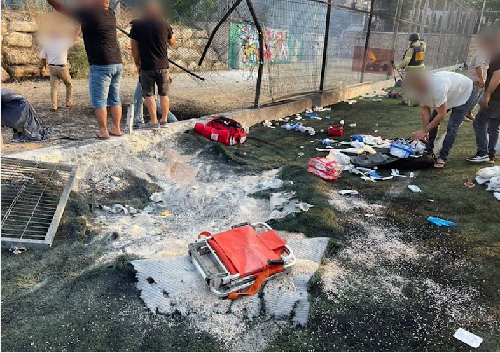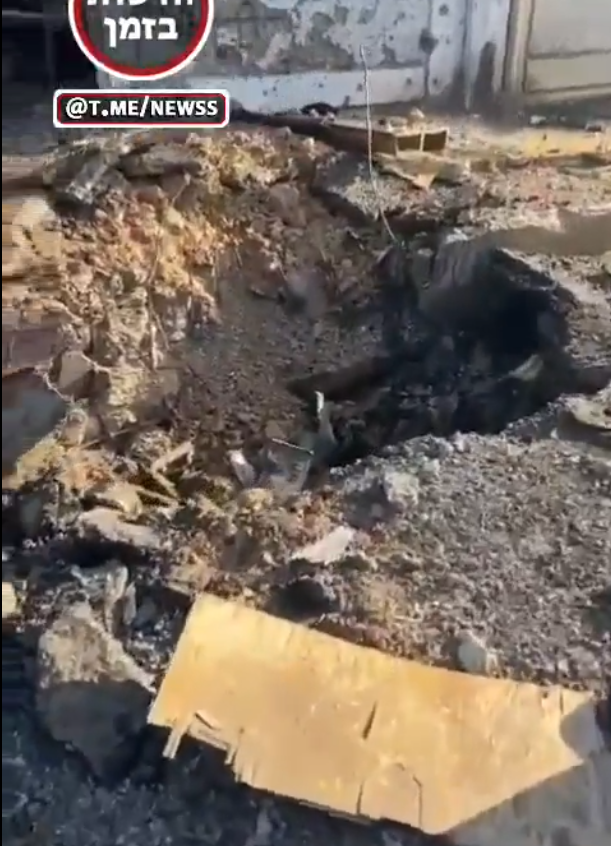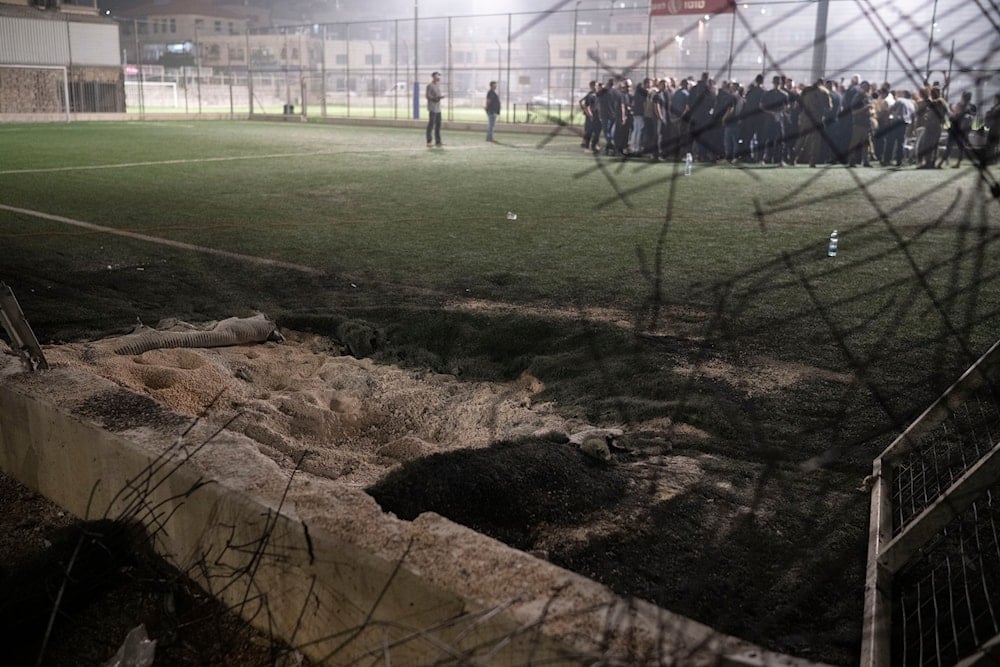Israeli regime authorities claimed on Saturday afternoon that Hezbollah launched a rocket at the occupied town of Majdal Shams, killing twelve civilians, including 10 children, in the process.
The Israeli military command even specified the type of rocket artillery shell used in the alleged attack, which it claimed was the Falaq-1 rocket.
Although the Resistance has launched highly precise weapons such as an anti-tank guided missile and drones at Israeli military positions in towns such as Arab al-Aramshe, it never fired unguided rocket artillery weapons at these towns.
The Resistance has also not been shy of taking responsibility for mishaps in the past, such as an incident in the 2006 war on Lebanon when a rocket launched by Hezbollah fighters impacted a home in occupied al-Nasirah.
It is highly probable that faults in a surface-to-air missile fired from an Iron Dome launcher just behind Majdal Shams caused the grave massacre.
There are many such incidents, with some being captured live on camera, including an event in which an Israeli Tamir missile struck a hospital in Tel Aviv on November 6, 2023.
https://twitter.com/i/status/1817244410171822406
Several technical issues related to an Iron Dome battery could result in a catastrophic interception failure. These issues include a malfunctioning engagement radar, a faulty radar seeker, a defective self-detonation sensor, and a compromised motor, among other potential problems. The most dangerous of these are faults in self-detonating sensors, which leave operators unable to destroy rogue surface-to-air missiles.
As for evidence collected from the impact site, the crater formed by the projectile is around 2 meters wide and a few centimeters deep. This indicates that the warhead that detonated in the area is far less than 50 kg and closer to the 10 kg range.
Another aspect to examine is the relatively large amount of combustion that occurred as a result of the impact on the football field.
High-explosive warheads generally do not produce large fireballs upon detonation. Instead, they create a powerful blast wave and intense fragmentation. The explosion of an HE warhead primarily generates heat, shock waves, and shrapnel rather than a visible fireball. A large-sized and visible fireball is typically associated with the combustion of fuel, such as that found in rocket engines or fuel tanks.
Probably
no, clearly it must have been a 50kg warhead
people have no grasp on the scale of high explosives and it shows
Some condensed pictures from the article:
This is the impact crater in Majdal Shams

This is a known impact of a Falaq1 rocket



